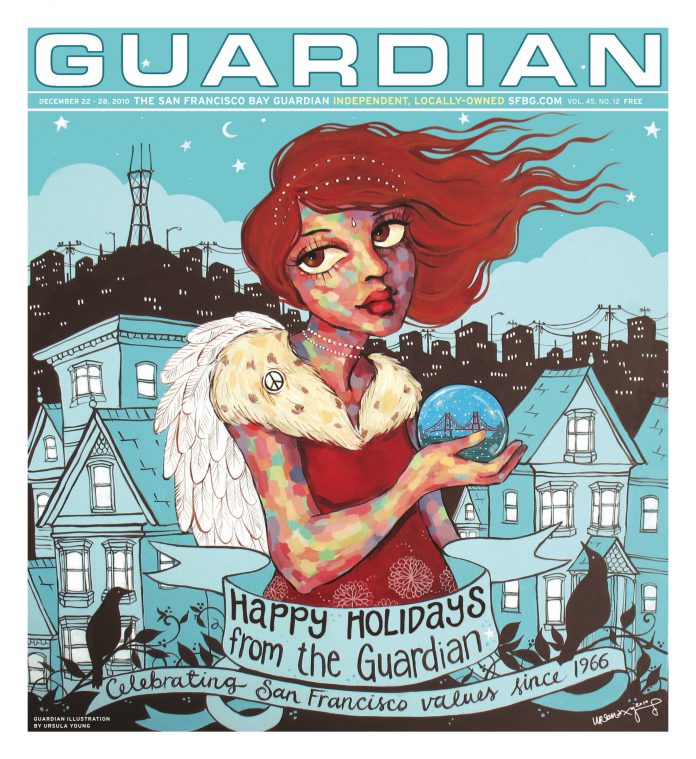GAMER 2010, TAKE ONE Although a large portion of the world remains blissfully unaware of a shift, the game industry has silently surpassed Hollywood as the wealthiest entertainment medium. The year was more transitory than breakthrough, but 2010 boasted a number of changes. Here are seven.
Reliance on sequels and franchises The industry has long been fond of franchising, but this year was especially sequel-rific. Big sales came from recognizable powerhouses like Call of Duty: Black Ops, Halo: Reach, Assassin’s Creed: Brotherhood, and Fable III — and these current installments offered thrills aplenty but were largely indistinguishable from last year’s counterparts. It makes you wonder how long consumers will give companies their hard-earned cash for the same experience each year. The Tony Hawk and Guitar Hero franchises can attest that nothing lasts forever.
A schedule in flux With the success of November’s Call of Duty a forgone conclusion, competitors scrambled to move their release dates well before or after the best-selling war game. The holiday season has traditionally been the most release-heavy time of year, but this year a number of big titles like Mass Effect 2 and Red Dead Redemption moved release dates to spring and summer to allow them more room to breathe. While the holiday season remained congested, spreading out a few of the bigger releases helped some titles make money and relaxed the strain on consumers’ time and wallets.
The game marketplace PSN and Xbox Live Arcade (XBLA) discovered profit in championing indie games. Consumers win as well: we got some truly original ideas in Limbo, DeathSpank, Fat Princess, Monday Night Combat, and Super Meat Boy, which commonly displayed a singularity of vision that your bigger, more focus-grouped titles lack. As an avenue for indie developers, the only route more exciting was gaming with iPhone and Facebook.
Removing the “geek” stigma On that note, everyone has a phone, and the recent explosion of iPhone and Facebook game releases just might make up more play hours than Big Three consoles combined. The success of Angry Birds, Cut the Rope, and (dear God) Farmville signals a willingness among casual gamers to while away hours of their lives with the best of the hardcore gamers. While industry giants like Activision say the App Store isn’t worth their time, the seeds have been rigorously sown for our phones to become legitimate gaming devices.
The battle for the casual gamer While Nintendo’s Wii continues to snub the classic gaming experience, Microsoft and Sony made their own leaps toward unconventional wiggle-waggle gaming with Kinect and Move, respectively. Kinect’s controller-less camera shows a great deal of promise and Move allows Sony an avenue to differentiate itself from an increasingly multiplatform marketplace, but neither company has the “must-have” software to back up their technology.
Curtain call This year found music gaming down, but not out. Unremarkable entries like Rock Band: Green Day and Guitar Hero: Warriors of Rock had declining sales figures to match. Developer Harmonix continued to innovate in its main franchise, adding a keyboard to Rock Band 3 and the ability to play with a real 6-string guitar, and Harmonix’s Dance Central demonstrated the best use of Kinect’s technology so far. But neither release was the blockbuster needed to revive a dwindling genre.
Rise of the DLC Disturbingly, a number of games are being released half in the box and half out; for the full experience you’ve got to get the downloadable content (DLC). Though this model is partially a sneaky way for distributors and developers to increase revenue, these “microtransactions” can also significantly extend a game’s shelf-life, something die-hard fans can applaud. Last winter’s Dragon’s Age: Origins was a great example, including characters at launch that functioned as in-game advertisements for DLC, but by continuing to release large add-ons like Dragon Age: Origins — Awakening throughout the year, gamers are still playing the title today. It’s a thin line, but for now the rewards of microtransactions continue to outweigh the pains.

